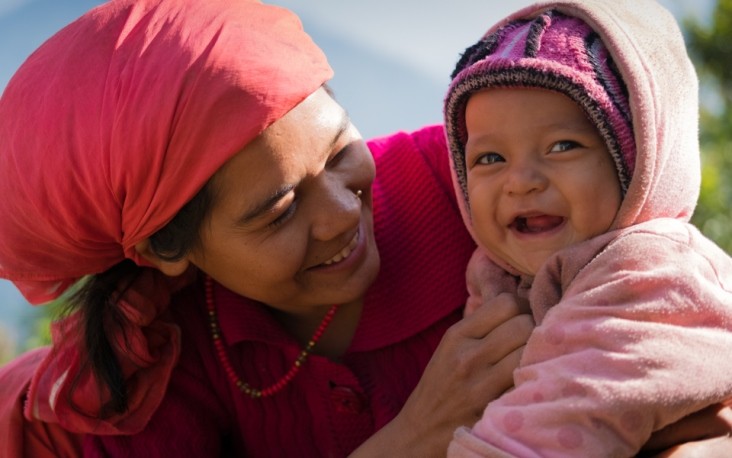

Over two dozen civil society organizations and development partners including UNICEF and Save the Children have called for increasing the Child Grant.
They have reiterated that resource allocation for children is not an expense but rather an investment for human capital.
Social Protection Civil Society Network (SPCSN), in collaboration with European Union, UNICEF and Save the Children organized a discussion program among the civil society organizations in Kathmandu on April 26 to reinforce scaling up the child grant as universal by the Nepal government.
They issued a joint appeal after the discussion program, urging the government to ramp up the Child Grant.
Currently, the Nepal government is distributing Rs 532 as a child grant to all children from 25 districts and children from Dalit households in 77 districts which has significantly contributed to reducing child malnutrition.
Stating that Nepal’s Constitution guarantees various social and economic rights, including rights to social security for vulnerable groups consisting of children, the civil society organizations cited in the joint appeal Article 43 of the Constitution that preserves the fundamental right to social protection for all children.
The article reads: “The indigent citizens, incapacitated and helpless citizens, helpless single women, citizens with disabilities, children, citizens who cannot take care of themselves, and citizens belonging to the tribes on the verge of extinction shall have the right to social security, by law.”
Similarly, The Child Rights Act 2018 provides a bundle of rights to children, including the rights to a dignified life, appropriate care, nutrition, and free basic health services.
The joint appeal states that through the Fifteenth Five-Year Plan, the Government of Nepal (GON) has committed to expanding the Child Grant program nationwide by 2024. It also plans to strengthen social security programs including Child Grant by expanding the scope of social security tax and the contribution-based social security system.
According to UNICEF, investment in children is an investment in ‘human capital.’ The right nutrition and care for children, especially during the first 1000 days of life – from conception to two years of age, can have a profound impact on a child’s ability to grow, learn and rise out of poverty. It can help break the cycle of poverty in families, communities, and countries. Similarly, brain development is most rapid in the initial years of life. Every additional dollar invested in quality early childhood development programs yields a return of between $6 and $17.
There is a strong need to scale up child grants as universal child grants in all districts of Nepal to bring a significant rate of return in the longer term, yet the government of Nepal has not been scaling up the intervention for the last few years. This can contribute to reducing future dependency and development of human capital though it may have few burdens on the fiscal capacity of government for now. Investment in children can break intergenerational poverty transmission.
Altogether 26 civil society organizations and development partners including UNICEF and Save the Children put their thoughts into the discussion program.
Thakur Dhakal from UNICEF urged that resource allocation for children is an expense rather investment for human capital.
Similarly, Basanta Raj Gautam; social protection expert, and Tillotam Paudel; Chairperson of SPCSN expressed their thoughts that government can leverage the resources for universal child grants by excluding children from well-off families, implementing contributory social security system as it has replaced the tax-financed public pension system, managing resources from corporate social responsibility of the corporate sector and accepting concessional soft loans from a development partner.
During the program, 26 civil society organizations expressed their solidarity and published a joint appeal to scale up the universal child grant and increase its benefit size.
—